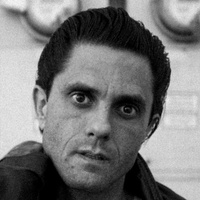On the importance of creating your own path
Prelude
Brooklyn-born artist Elbert Perez draws upon the precarious state of the human psyche as the basis for his practice. Taking French and Dutch still life paintings as a point of departure, Perez’s allegorical narratives seek to reflect both the fragility and strength of the human psyche. Through ominous depictions of animals and everyday objects including ceramic figurines, hammers, and flames, Perez explores themes of death and suffering, evoking the symbolism of 17th-century vanitas paintings. In 2022, Rachel Uffner Gallery hosted Perez’s inaugural solo exhibition in New York, titled Just Living the Dream.
Conversation
On the importance of creating your own path
Painter and artist Elbert Perez discusses what he learned by not going to art school, encouraging growth through embracing change, and being cautious of critical acclaim.
As told to Sammy Maine, 2441 words.
Tags: Art, Process, Education, Success, Inspiration.
How did you find your niche?
Looking back to how I was working when I started getting into painting, aesthetically things changed, but this general theme of symbolism has always been a pretty important thing. When I was younger, I wanted to get better technically and keep learning but then as far as finding a personalized aesthetic, it wasn’t necessarily something that I sought but I happened upon. I still feel pretty young in it. I feel like I’m just at the nascent stage of what I’m starting to do and I have a feeling things are going to change very dramatically because looking at other artists, their style is so distinct. It’s like when you don’t see someone every day, after some time you’d see them and they’ve changed a lot. You don’t notice these nuanced moments.
I know that things have changed for myself in time, but I don’t think I’m where I should be or might want to be, or I think I’m supposed to be, but everyone else can be like, “Oh, your style is very distinct.” That’s really interesting because I don’t necessarily know what it is that makes it so distinct.
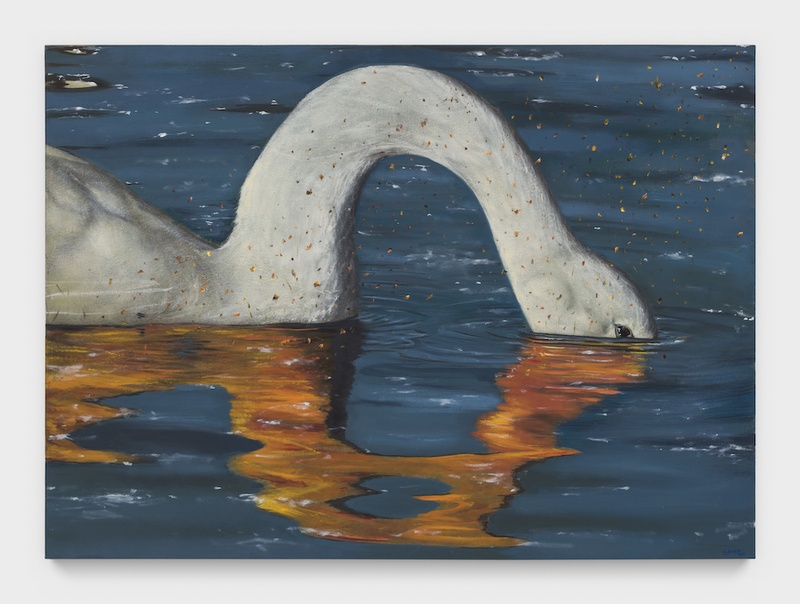
Does that impact your perspective on your own work?
Sometimes. When somebody brings it up, I’ll think about it because again, I personally don’t feel like I would necessarily want to be recognized prima fosse––just how everything is stylized––because my personal philosophy in trying to make work is that I’ll try to utilize any kind of aesthetic to deliver a general point. It usually makes me feel locked into this one specific form and it makes me want to challenge that and keep changing it. People saying, “Your work has changed so dramatically” is a nicer feeling to me than “Oh, your style is so distinct.”
I’ve always had a general disinterest towards artists who make these reiterating images or objects because there’s only so many ways you can say something. I love and respect his work, but I was thinking that if I were someone like Ellsworth Kelly, I would be so bored. I could not make these different shapes and different colors every day for my whole life. Things should be changing constantly, and not that that should be an objective in painting, but I should be open to experiencing a new technique or a new way of presenting something because it’s like the human experience. As you navigate the world, you will come into new ideas and new things and if you allow it to change you, that’s a lot more gratifying. It’s a lot more fun, especially when you can propagate something new and different through that new experience.
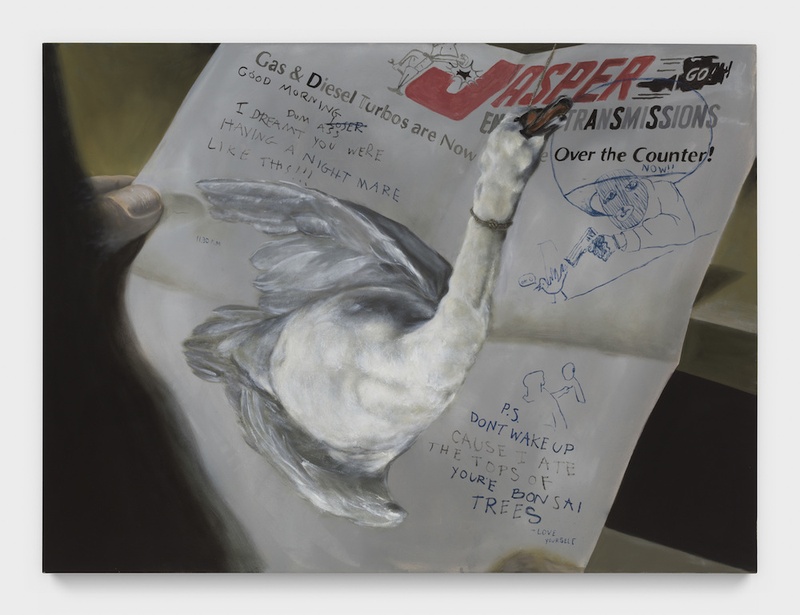
I think there’s a danger and a pressure, especially in creative endeavors, to be a brand.
That’s a terrifying avenue to go down. To each their own. People who do it are benefiting from it––at this point we all have to live––but I don’t think that I could happily compromise my work for acquiescing to some kind of demand for something. I don’t like the idea of reiterating an image, especially not just to sell to someone. To acquiesce to someone’s demand, whether there’s some lucrative incentive or social incentive, I think that would compromise the fidelity of the work itself and end up annexing it into a brand and to me, that’s really boring.
Do you have any formal education in art?
I don’t. I actually only have a GED and I think for me personally, it really helped. I had this math teacher in high school who had a personal vendetta and she failed me by a single point, so I wasn’t allowed to graduate but I wanted to go to art school pretty bad. So I spent the next year trying to get some credits at a community college and then applied to SAIC and I went for a portfolio review and they told me that I needed the GED. While I was in that process, which I think took about two years, a lot of my friends had gone to art school and half of them were kind of just beat down by the curriculum. They were very discouraged.
I’m very self-motivated when it comes to learning something, so if I’m told to do something, typically I won’t want to do it, but if I’m really curious about something, I will be really adamant about learning it. Painting has been the only thing that’s always providing challenges and things to solve or learn, so it’s constantly really engaging. Considering the resources that we have, I think there are certain elements of art school that are kind of obsolete, but there are certain faculties and resources that are really good to have access to. I think there are things that you can gain from art school or formal education, fundamentals or some kind of organized curriculum, but I don’t think that you can learn inspiration or a work ethic from school. I’m a big proponent of not going to art school and just diving into it and using your hands, and experiencing whatever medium and troubleshooting.
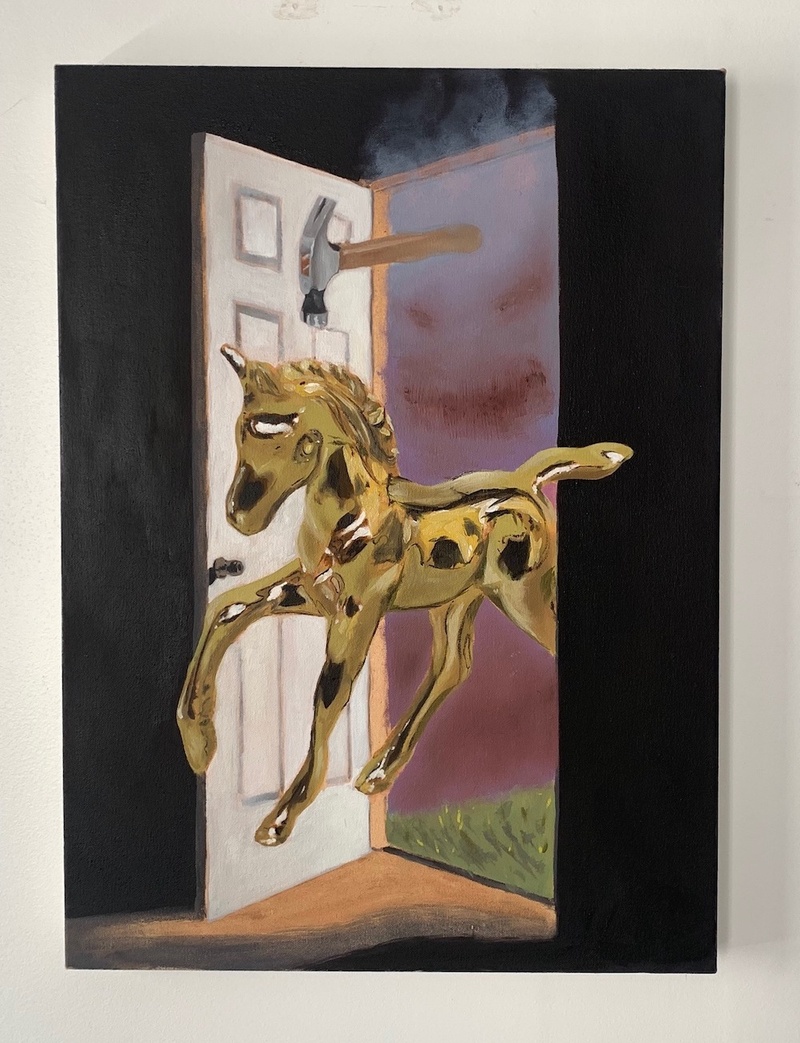
What are some of the ways that you’ve honed your skills over the years?
I’ve learned that because my paintings are so idea driven, I need time to experience things and have ideas ferment. I’m also working full time. I go to the shop and work nine-to-five and then it’s hopefully eight hours of studio practice but that’s just the working element of it. When it comes to making work that I feel confident in interjecting some sense of spirit, I’m realizing now that it takes a little time for me to be able to put something out. Painting specifically, it’s easy to make a beautiful image but for me, there needs to be another level of engagement, another idea. The discipline I apply to that is when I do have an idea, it becomes this moment and I have to do research about this idea. So it forces me to read new texts and go through these different rabbit holes of degrees of association, which becomes a learning experience.
It also forces me to make time in-between work and the studio. At work, I’ll read in my downtime and then during studio time, I’ll apply those readings. I’ve definitely learned a lot of time management when it comes to a work ethic, which was something I was never ever good at. And even then, if I’m not that inspired, then I can slack off a little bit. But then that ends up being beneficial too, because I’ll just go places and end up talking to strangers and finding new things to think about that can then be applied to the studio.
Are there any practices you put into place to be able to get yourself in the right mindset to create work after doing your day job?
I don’t have a set kind of thing because working on cars requires a completely different form of thinking. I assume my pre-consciousness does a lot of work while I’m actively thinking about how to remove something or how to diagnose the car, just these quiet thoughts, and at a certain point, something clicks and it’s like a dog chasing after something. Once it latches its teeth into it, it wants to stay there. I don’t have any real meditative practice because then that feels like I’m chasing a butterfly, which is pretty difficult. My mind is always running all the time. So, to have that job is really helpful because then it’s two wheels running in different directions.
Do you have to be in a certain space to create?
Currently I’m working out of my apartment, which feels a lot better than having a studio because it affords me a chance to be hyper intimate with the work and to constantly witness it in my personal space. I can more casually converse with images. I like to have time with something and to slowly craft it carefully as opposed to “I’m going to this space dedicated to working and I have to get something done.” A space like that turns painting into more of a labor than it is something to participate in.
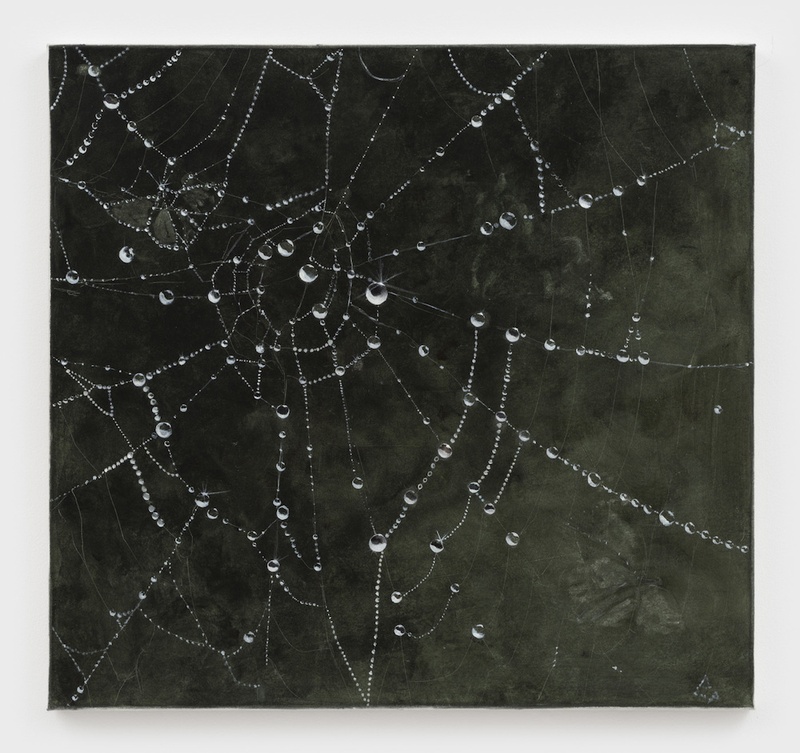
Do you ever abandon a piece you’re working on?
A lot. I’ll usually have some ideas that are not fully formed in a sense and then I’ll put it together and see how it looks. Sometimes with that sort of eagerness to make something, it’s not a half baked idea, but an idea that wasn’t fully thought through, where it’ll have a missing element that I just can’t put my finger on. Then what ends up happening is I’ll have a handful of works sitting for a long time and will keep looking at them, asking ‘what is it that this thing needs?’ But then when that goes on for so long, you forget the general idea and what the point of the painting was and then there’s no way I can return to that conversation.
So I just have to paint over it and then do something new, but I’ll document it and go back to it and I can use this element from this painting to cannibalize it. To create something new. It’s like going back to a two-year-old conversation with someone like, oh I actually have this one point and they’re like, “I don’t know what the fuck you’re talking about.”
You just had your first solo exhibition at the Rachel Uffner Gallery. What are some of the things you learned from that experience?
It was my first time reiterating a point through so many pieces, so I was trying to find ways of using certain symbols and reiterating these symbols without it being too repetitious. To prepare to produce that much work and to reiterate a conversation about suffering and life and death, I went through as many different channels as possible and gleaned certain passages or symbols from different cultures, different theologies and tried to retranslate them through my own. And then trying to figure out ways to gracefully position them without it getting too boring but to still maintain a general kind of family tree. It was mostly a lot of thinking and a lot of reading different texts to try and basically dress the idea of suffering in 12 different ways. Even then there’s some repeat outfits, which is fine. We can do that sometimes.
What did your timeline look like?
What can I realistically produce in five months? I remember when I did a residency with my ex a while ago and we were there for four weeks and I got there and thought I could make five paintings in four weeks. And everyone was like, “You’re fucking crazy.” And then I ended up getting really close to that goal. So, if I can do four paintings in four weeks, I could probably do three paintings a month, and then ideally make 12 paintings by this deadline. Looking at the space, I wanted to have it look right and feel kind of full and then I just set my eyes on that and tried to work in sizes. With larger paintings, I try to make them on the simpler side and with smaller paintings, I can make them look a little more intricate. Having five months and setting up pretty high expectations, I definitely realized what I was capable of and what I was not capable of and really know the time that I need to do something, what’s basically physically possible and what is just super unrealistic. It’s nice to be able to learn that threshold of mine, but that was all in the technical production. What I’m really learning now is this sort of spiritual production in a way which is something I didn’t think about.
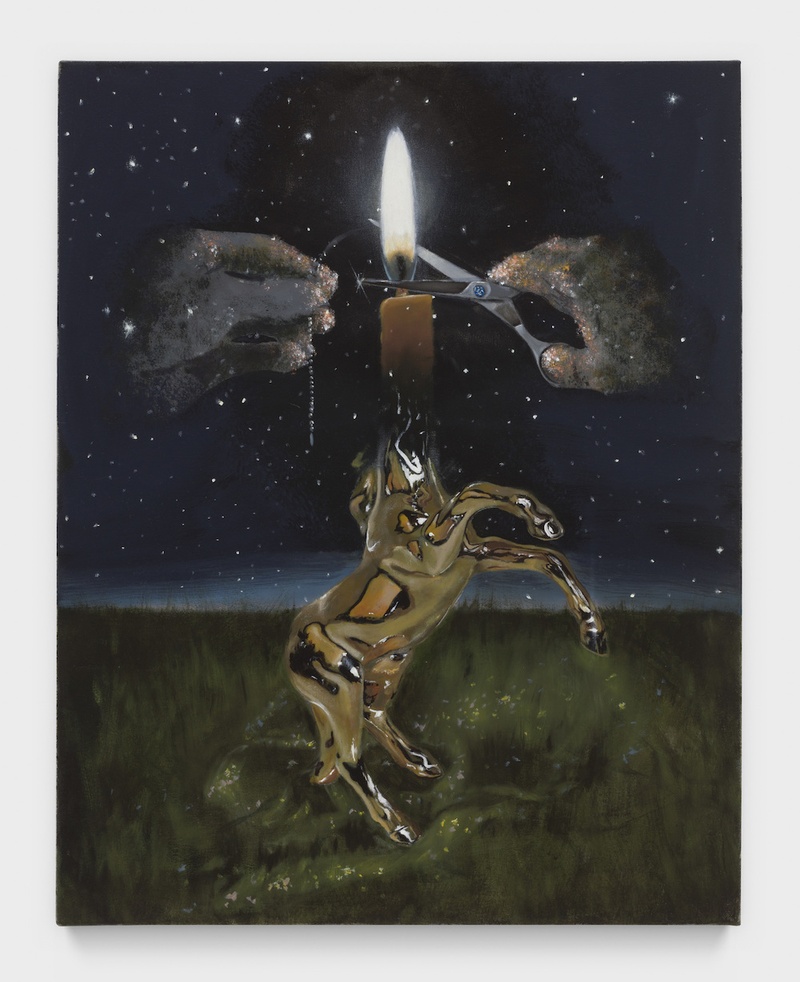
Did the show make you feel successful or change your perception of what success means?
For the first time, I feel a little more widely recognized in my labor. And then after a lot of heavy therapy throughout the year too, I was able to acknowledge my own labor in it. I feel a personal sense of success for having this goal and completing it. As far as the actual success of the show itself and how I feel as an artist finally making my way into that circuit, I realize that I am not necessarily too enchanted by acclaim. At the end of the day, the work just needs to get done. I just want to paint things that I would like to see and things that help me understand what I’m thinking and whatever reception comes of it, then that’s great––or not great––depending on what kind. I will not stop painting because it’s just something that I need to do. But for me, I’ve definitely learned it’s been more a personal success for myself, mentally and spiritually, which has been a pretty gratifying thing to experience.
Will you be approaching your work differently at all now?
It’s exciting, but it’s also kind of daunting because I feel like there’s going to be a little more attention as to how much of a lunatic I really am. And I am worried about how people are going to take my stance on things whether it’s through painting or on the internet, but I don’t think I will necessarily change that because as far as my presence goes in painting, it’s just funnier to be a bit of a kook and I’m going to roll with that. All things considered, I didn’t get here by being conservative or making works that people wanted to see. I have been doing me and maintaining that. And if I have to change that to progress, then that just sounds miserable. I wouldn’t be caught dead changing to somebody else’s will. It’s already hard enough to live this life.
Elbert Perez Recommends:
Death: those moments where I remember I’m going to die so I should get things done before I do
Deep conversations with people I hardly know
Idioms, aphorisms and allegories
Religious tales, theology in general
Continental philosophy, Sartrian existentialism in particular
- Name
- Elbert Perez
- Vocation
- visual artist
Some Things
Pagination
